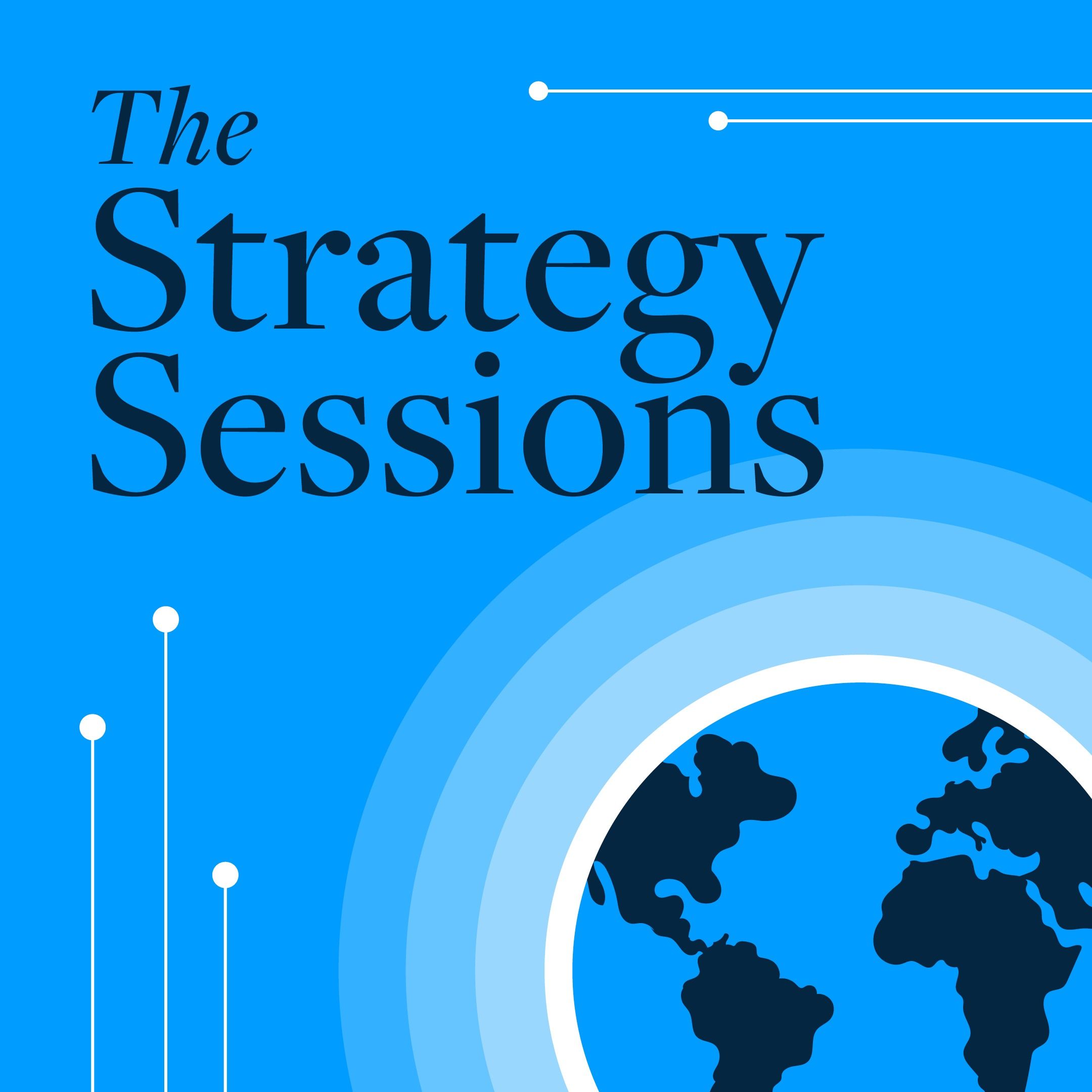

The Grand Strategy Sessions
The Stimson Center
The Reimagining US Grand Strategy Program at the Stimson Center presents The Strategy Sessions podcast, a series that explores the diversity of opinions about the future direction of U.S. foreign policy.
Episodes
Mentioned books

17 snips
Oct 1, 2025 • 32min
Chris Preble and Emma Ashford: First Among Equals
Christopher Preble, Director of the Reimagining U.S. Grand Strategy Program at the Stimson Center, joins Emma Ashford to discuss the decline of U.S. relative power and the need for a more realistic foreign policy. They explore the necessity to prioritize Americans' security and reorient alliances to serve U.S. interests. Preble critiques the current grand strategy as outdated for a multipolar world, while Ashford advocates for focused engagement in Asia and Latin America and a balanced approach to economic statecraft, highlighting the limits of sanctions.

10 snips
Sep 29, 2025 • 32min
Jeremy Shapiro: Eat, Pray, Campaign
In this discussion, Jeremy Shapiro, Director of Research at the European Council on Foreign Relations, explores the evolving landscape of U.S. foreign policy amid declining unipolarity. He highlights the need for strategic discipline and prioritization, amidst a political climate where Democratic candidates seek emotionally resonant narratives. Jeremy also reveals how U.S. parties often lack coherent foreign policies, emphasizing the importance of adapting domestic cultural stories to shape foreign policy effectively.

10 snips
Sep 29, 2025 • 32min
Jennifer Lind: Progressivism and Prioritization
Jennifer Lind, an Associate Professor of Government at Dartmouth College and expert in international security, discusses the evolving landscape of U.S. foreign policy. She explores the implications of declining U.S. primacy amid rising powers like China and Russia, advocating for a prioritized grand strategy focused on Asia. Lind emphasizes the importance of addressing structural inequalities and renegotiating alliances, arguing that a progressive approach can reshape U.S. engagement globally while ensuring regional stability.

Sep 26, 2025 • 28min
Julia Gledhill: Nationalization and the Military-Industrial Complex
Julia Gledhill, a research analyst at the Stimson Center, dives into the complexities of the U.S. defense industry. She discusses the potential for partial nationalization of defense companies to enhance strategic decision-making and procurement. Gledhill highlights the impact of financialization on contractor incentives, leading to delays in projects. She argues that examining international models, like those in France and South Korea, could provide insights for reforming U.S. defense policy. The conversation underscores the importance of accountability and collaborative foreign policy approaches.

10 snips
Sep 26, 2025 • 27min
Mohammed Soliman: A Techno-Industrial Strategy
In this insightful discussion, Mohammed Soliman, a senior fellow at the Middle East Institute and author on techno-industrial strategy, delves into the importance of industrial policy in reshaping U.S. foreign relations. He highlights the pivotal role of AI in enhancing state power and warns of the scale gap between U.S. and Chinese manufacturing capabilities. The conversation also explores the need for the West to foster partnerships to compete globally and examines the strategic significance of space technology and reindustrialization in ensuring national security.

Sep 24, 2025 • 30min
Michael Brenes: After the Age of Trump
Michael Brenes, Director of the Brady Johnson Program on Grand Strategy at Yale, discusses post-Trump internationalism and U.S. strategy in a changing world. He delves into the emergence of a multipolar landscape and the necessity of prioritizing transnational threats like climate change over dominance. Brenes argues for rebuilding domestic institutions to enhance foreign policy and the importance of multilateralism in addressing global challenges, while pushing back against the fallacy of winning against China in a competitive framework.

Sep 24, 2025 • 35min
Ali Wyne: China Resurgent
Ali Wyne, a senior advisor for U.S.-China relations and author, offers deep insights into the complexities of the U.S.-China dynamic. He discusses how American anxiety shapes foreign policy and argues that a resurgent China could present unique opportunities for U.S. policymakers. Wyne highlights the importance of adapting strategies to new realities, emphasizing acceptance and the need for internal renewal without relying on competition. He also explores China's strengths and weaknesses, urging a balanced view rather than extremes in policy reactions.

Sep 22, 2025 • 31min
Sumantra Maitra: The Promise of Germany and the "Europe" Question
Sumantra Maitra, a senior writer and director of research at The American Conservative, dives into the complex U.S.-Europe relationship. He discusses the concept of offshore balancing and the need for the U.S. to pivot its strategy towards maritime strength. Maitra critiques NATO and the EU's structural problems, emphasizing Germany's pivotal role in burden-sharing. He argues that America's foreign policy should prioritize domestic revitalization in manufacturing and education, challenging the notion that the U.S. must always maintain a favorable international perception.

12 snips
Sep 22, 2025 • 31min
Zack Cooper: Strategic Insolvency and Multipolarity
Zack Cooper, a senior fellow at the American Enterprise Institute and Princeton lecturer, discusses the future of U.S. foreign policy in a multipolar world. He defines 'fragmented multipolarity' and contrasts military dynamics in different regions. They touch on the necessity for hard strategic choices, advocating for a shift in U.S. commitments towards building flexible coalitions. The conversation highlights the unpredictable nature of U.S. reliability on allies and China’s strategic outreach, while also addressing the risks of nuclear proliferation among allies.

Sep 15, 2025 • 32min
Michael Poznansky: Renovating Liberal Order
Michael Poznansky, a Professor at the U.S. Naval War College and an expert on international order, discusses renovating the liberal international order. He analyzes the shifting dominance from U.S. unipolarity to a China-centric competition, advocating for multilateralism and the promotion of the rule of law. Poznansky contrasts binding institutions like NATO with the UN and emphasizes the need to balance values with rules. He also debates strategies for U.S. diplomacy and military alliances to strengthen foreign policy in a multipolar world.


